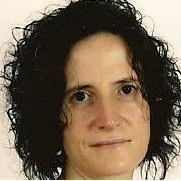Advance in Biodegradable Medical Devices
A special issue of Materials (ISSN 1996-1944). This special issue belongs to the section "Biomaterials".
Deadline for manuscript submissions: closed (20 October 2022) | Viewed by 1198
Special Issue Editors
Interests: composite materials; durability; creep; fatigue; viscoelasticity; viscoplasticity; polymers; biodegradation; scaffolds
Special Issues, Collections and Topics in MDPI journals
Interests: materials for regenerative medicine; bone tissue; vascular grafts; scaffolds for nerve tissue regeneration and endodontic sealers; scaffolds for tendons and ligaments repair
Special Issue Information
Dear Colleagues,
The medical devices surgically implanted worldwide are reaching into the millions per year and becoming an essential part of modern medicine. These devices perform diagnostic, therapeutic, or regenerative functions in different clinical applications, such as tissue repair, controlled drug delivery, and vital-sign monitoring. Yet the permanent devices associated with health risks in the long-term may require secondary surgery for its removal. By designing medical devices to be resorbed and eliminated by the body after completing their temporary functions, the associated long-term side effects are avoided. These biodegradable medical devices, ranging from tissue repair, drug delivery, and biodegradable electronic devices, may incorporate natural and synthetic polymers and hydrolysable metals. After their implantation, various degradation mechanisms act on these materials to generate degradation products easily resorbed by the body.
Designing a biodegradable implant device implies assuring the mechanical compatibility between the material and the host tissue, and the biocompatibility of degradation products generated during biodegradation in the host biological system. It remains quite challenging to balance the mechanical compatibility and degradation rate. Better knowledge of the interaction between the device and the host is critical to design successful devices.
Next-generation biodegradable devices will integrate multiple functions, but their design will require in-depth knowledge of the interaction between the host wound-healing mechanisms and the immune responses caused by the biomaterials and devices and their degradation products.
This Special Issue intends to cover these open questions and other related issues on biodegradable medical devices. It is our pleasure to invite you to submit a full paper, a communication, or a review article.
Prof. Dr. Rui Miranda Guedes
Prof. Dr. Maria Ascensão Lopes
Guest Editors
Manuscript Submission Information
Manuscripts should be submitted online at www.mdpi.com by registering and logging in to this website. Once you are registered, click here to go to the submission form. Manuscripts can be submitted until the deadline. All submissions that pass pre-check are peer-reviewed. Accepted papers will be published continuously in the journal (as soon as accepted) and will be listed together on the special issue website. Research articles, review articles as well as short communications are invited. For planned papers, a title and short abstract (about 250 words) can be sent to the Editorial Office for assessment.
Submitted manuscripts should not have been published previously, nor be under consideration for publication elsewhere (except conference proceedings papers). All manuscripts are thoroughly refereed through a single-blind peer-review process. A guide for authors and other relevant information for submission of manuscripts is available on the Instructions for Authors page. Materials is an international peer-reviewed open access semimonthly journal published by MDPI.
Please visit the Instructions for Authors page before submitting a manuscript. The Article Processing Charge (APC) for publication in this open access journal is 2600 CHF (Swiss Francs). Submitted papers should be well formatted and use good English. Authors may use MDPI's English editing service prior to publication or during author revisions.
Keywords
- tissue engineering
- drug delivery
- wound healing
- natural biomaterials
- synthetic biomaterials
- implantable sensors
Benefits of Publishing in a Special Issue
- Ease of navigation: Grouping papers by topic helps scholars navigate broad scope journals more efficiently.
- Greater discoverability: Special Issues support the reach and impact of scientific research. Articles in Special Issues are more discoverable and cited more frequently.
- Expansion of research network: Special Issues facilitate connections among authors, fostering scientific collaborations.
- External promotion: Articles in Special Issues are often promoted through the journal's social media, increasing their visibility.
- Reprint: MDPI Books provides the opportunity to republish successful Special Issues in book format, both online and in print.
Further information on MDPI's Special Issue policies can be found here.







